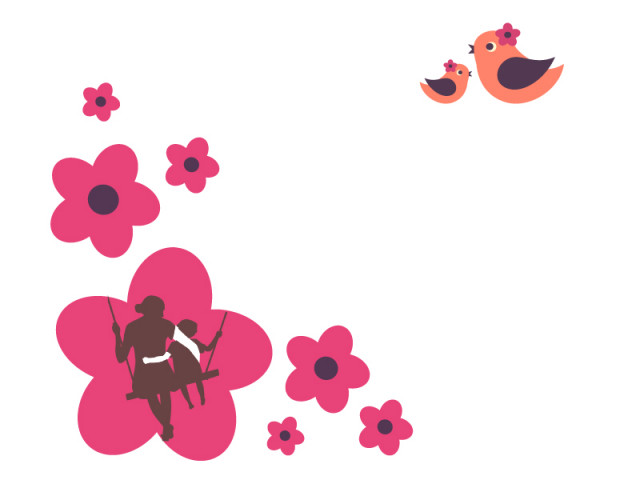Mother superior: In her honour
A brief history of Mother’s Day.

“Ever since they could walk and talk, my daughters Saira and Rija, have been preparing a special breakfast treat for me on Mother’s Day with the help from their father,” shares Sadaf. “There is so much hustle bustle in the kitchen that sleeping till late is simply impossible. But my husband and the girls do quite a job preparing the treat — I have lots of eggs, pancakes and juices to look forward to.”
This Sunday, May 11th, Sadaf and thousands of other mothers across the world will be woken up and indulged by their families trying to show just how much they appreciate their mothers. This year, however, is no ordinary Mother’s Day. 2014 marks a whole 100 years since the celebration was started by American activist Anna Jarvis in honour of her deceased mother, Anne Marie Jarvis. Born in 1832, Anne Marie devoted her life to local women — especially mothers — recovering from illnesses like tuberculosis, despite losing eight of her 12 children herself. She died at the age of 73, on the second Sunday of the May of 1905, three years after which Anna organised the first Mother’s Day in her honour. By 1911, the holiday was unofficially celebrated in nearly every state of the United States until President Woodrow Wilson signed a resolution in May 1914, designating the second Sunday as Mother’s Day.

However, there is some discrepancy regarding the exact origins of the holiday. Although it is largely considered a ‘modern’ preserve, Mother’s Day dates back to the ancient Greek and Roman civilisations that dedicated an entire spring festival dedicated to their maternal goddesses. The Greeks prayed to Rhea — wife of Cronus and mother of many other deities in Greek mythology during the festival. Similarly, the Romans dedicated their own festival called Hilaria to their mother goddess, Cybele. The celebrations went on for three days and included public parades, games, masquerades and sacrifices at Cybele’s temple.
On the other hand, many believe that the holiday arose in medieval England of the 17th century, wherein Christians celebrated ‘Mothering Sunday’ on Laetare, i.e. the fourth Sunday of Lent. This was done to commemorate Virgin Mary, mother of Jesus, but was later on expanded to all mothers in the country. People would attend ‘Mother church’ and exchange gifts of Simnel (fruit-cake) and flowers with their mothers. Children working as domestic servants for other people would be allowed to visit home to see their families.
Despite its ambiguous history, Mother’s Day as we now know it can be attributed to Anna’s efforts. Ironically, she never ended up marrying or becoming a mother herself. Over the years, Anna became resentful of the commercialisation of the holiday she had established, realising that the local flower, candy and stationary industries were exploiting her idea to line their profits. She believed Mother’s Day ought to be a celebration of home, family and maternal love.
Perhaps Anna’s concerns are justified. Large companies attempt to rake in profits by tugging on the consumers’ emotions and offering a variety of paraphernalia for them to express those emotions with, such as flowers, cards and stuffed toys, etc. Cosmetic giants offer special Mother’s Day makeup packages while luxury goods brands call on buyers with attractive discounts. “The idea is to thank your mother for all her hard work and patience in bringing you up,” says 23-year-old banker, Hina Shahid who is planning a surprise chocolate pie to give to her mother this Sunday. “Of course, there is commercialisation — the retail industry and holidays like Mother’s Day go hand-in-hand.”
Nonetheless, Mother’s Day ought to be seen as a celebration of motherhood and an ideal excuse for some quality family time. Fortunately, there are still plenty like Sadaf and her daughters for whom Mother’s Day still remains organic and special. “Being a mother is extremely difficult and one doesn’t realise it until they have children of their own,” says Sadaf. “My own experience has made me appreciate my mother 10 times more. Therefore, this year, after I am done bonding with my daughters over breakfast, I am planning to visit Ammi and do something special for her. After all, everything I am now and hope to be later, I owe to her.”
Published in The Express Tribune, Ms T, May 11th, 2014.



















COMMENTS
Comments are moderated and generally will be posted if they are on-topic and not abusive.
For more information, please see our Comments FAQ